Note
I read your post about Addie and Luc and Henry and the ending. I think Addie and Luc go off into the sunset (or I guess darkness) together forever. And it's a happy ending for them both. To me, Schwab leaves clues about this throughout the book. Addie is always setting boundaries for herself around him and then she always gives in. So she'll give in again. And the life he could offer her is exactly the life she's always wanted-- traveling, comfort. And Luc -- literally her dream man. Finally, in the book written by her and shared with the world, she's quoted saying how she'd tricked Luc. I'm not sure if this is Schwab losing track of her characters or intentional. Because Luc is going to read the book so if he sees that, there's no secret to her plan. Perhaps she told Henry that just so he'd believe she didn't really want to go.
I so agree with Addie setting boundaries and still falling for Luc's tricks... or charm (I can't help thinking that their falling out--the one where they burned their house--was just a misunderstanding)!! But from what I remember, Henry did not know how to end the story. It was Bea (I think? The artist one) who said that it's all wrong if he does not give it an ending, so he wrote the one where Addie tricks Luc based on his own hope (which is based on Addie's own stories and dreams) that one day, she becomes free of him :)) From what I understood, "The Invisible Life of Addie LaRue" itself, the one we read IRL, is Addie's but the ending is Henry's because it did not seem right (as per what Bea said) if it just ends like that, with the protagonist disappearing. So no one really knows, IRL (except for Schwab, I guess) and in the book, what happened to Addie and Luc after all that :')
4 notes
·
View notes
Text
Stone Blind by Natalie Haynes is such a missed opportunity that it is disappointing
I picked Stone Blind in the bookstore as a chill read, but I was expecting to be swept away like how Circe by Madeline Miller did. Stone Blind, according to the synopsis, is about Medusa and her story; it is a retelling, a reimagining. A "fresh" take. Well, for starters, it is not.
It is not difficult to please any reader like me. I never had a book completely disappoint me in all the years I've read. I'm 24 now, and I started reading books when I was like 10. All I want is for a book to entertain me enough to give my mind a leisurely ride while keeping it relaxed, to give me something new to think about and wonder for awhile, or to completely mind-blow me if it is really that good.
This book did nothing of any sort. There are a LOT of lapses in the story because it tried to do a lot of things at once, but it failed to neatly and cleanly pack it all up in the end. It seems that this book did not understand the Ancient Greek culture at all. Even the Greek gods did not seem to have any solid personality in this book. The characters all felt so shallow. Stone Blind is simply literally retelling what anyone with basic knowledge of the Greek mythology already knows, and put some dialogues there to fill in some blank spots.
Spoilers beyond this line.
Now, before we continue, let me tell you that I am not attempting to make an unbiased review of the book. I am writing this as someone who has immersed herself in Greek mythology as a kid, as someone who wanted a pleasant read while having her finals week in the university, as someone who simply wanted something new to think about, and as a woman who enjoys a good feminist retelling of a story of a woman in fiction who was demonized through out history.
Stone Blind promised a "fresh take" of Medusa, "the original monstered woman." As said, there was nothing fresh in the book's take. Nothing revitalized. Nothing reconstructed. The dialogues were mostly bland; the characters, barely there. It did not even feel like Medusa was the main character. It was basically a story of Athene at first, then Perseus. Many parts of the story were unnecessary to the point that you would forget something else happened because they were barely relevant halfway in the story and/ or in the end.
One good point I have for Stone Blind is that when someone is raped, the author really uses the word "rape". At first, I thought maybe this is the lack of creativity and/ or better words, but then I realized that she wants to say it as it is so that there would be no other interpretation, no misunderstanding, and no more debate as to what really happened. That is the only good point I have for this book.
But my main complaints? Let us enumerate them:
First, everyone—Panopeia (whoever that is in the story; the chapter was named Panopeia but it was not in the list of characters even when the olive grove and a random crow made it there), Athene, Hermes, and Gorgoneion (apparently Medusa's head but you would not know until Medusa gets beheaded and says it herself)—or shall I say, the author herself, kept forcing the readers to hate Perseus. Gorgoneion had chapters dedicated to shitting on Perseus: "You're probably feeling sorry for him now, aren't you? Poor little Perseus, the reluctant hero. Defender of his mother's honor. Boastful little fool..." Knowing that Gorgneion is Medusa's head might let us know that she hates Perseus because he killed Medusa, that is true. But the thing is, it is not only Medusa who keeps saying that Perseus is arrogant, whiney, incompetent, foolish, annoying, and more. Even Athene, as a narrator and a character, and Hermes said it. Basically anyone who has interacted with Perseus and narrated the story said it. So it must be true, right? But is that how you write a story? Sure, they all keep saying that Perseus is all that and does not deserve to be called a hero, but they fail to show the audience how! It keeps being said but it is not shown. The author wants us to hate Perseus by saying it but does not show us why.
This is where it feels like the book fails to understand Ancient Greek culture. The point about Perseus being an annoying and arrogant little prick circles around the fact that he wants to set out on a quest to get Medusa's head but he does not know what a gorgon is, what to do, where to go, and all that shit. He also "complains a lot" and when he got Medusa's head, he "liked killing people" and became "arrogant". First, honor and pride are the center of Ancient Greek stories, characters, and heroes. This is why Greek gods and goddesses intervene in wars and quests. This is basic in any Greek mythology thing! And even without these values, of course Perseus would not want his mother to be taken by any man, even by a king! Why would we fault Perseus with that? Gorgoneion kept saying in one chapter that had Perseus not intervened, the king would have grown tired of Danae (Perseus' mother) and would have cast her aside because he was not interested in her anyway; he just wanted whatever his brother, Dictys, had (Danae and Perseus was taken in by Dictys when they escaped Danae's kingdom long ago). But how would Perseus know that? All Perseus knew, as a 16-year old boy, was that their peaceful life was disturbed by a king and now the king wants his mother. What child would not want to do anything and everything to intervene, Ancient Greek mythology character or not?
Next, Perseus was sixteen! A child! An Ancient Greek child, at that. Of course, he would not know what a gorgon was, where Nereids lived, what he needs to behead a gorgon, and all those things. He did not grow up as a prince being educated on what gods, goddesses, and monsters looked like; he grew up in a fishermen's village learning how to live day by day beside a sea! He was well-taken care of by Danae and Dictys, of course he was mostly comfortable in life. Of course, he would complain when there are painful and uncomfortable moments in his quest! Anyone would! Anyone would grow frustrated and complain when they do not know stuff, but know that they have to do something or else their parent would be taken away, but somehow they keep failing and/ or getting lost! It was stupid, yes, to set out not figuring things out first, but if you were given only two months to do something known as impossible with your parent's freedom at stake and with no one else to support you (even Dictys did not speak against the king, his own brother), even you would go impulsive.
In moments in which Perseus does something abhorrent, his actions seem random and forced, just so they can say that he is bad. For example, Perseus used Medusa's head to turn someone to stone when they denied him food and lodging. They said he had to get the king's, Atlas', permission first and the directions they gave him was lengthy and confusing that it annoyed him, so he turned them to stone.
In the end, most of his being annoying and whiney can be attributed to the fact that he is just sixteen but he feels that he has to do something impossible to save his mother. His being arrogant can be attributed to the fact that he is just sixteen yet he killed and outsmarted gorgons with the help and favor of the gods. He was also mostly kept company by gods who are known to be arrogant. Now, I am not in any way defending Perseus—I know Ancient Greek men in the mythology are shitty—but this is how I view the author's persistent shoving in the face of Perseus being a prick. The author keeps taking Greek mythology out of context; Stone Blind keeps being pulled to modern world and standards that it cast aside the context and nuances of Ancient Greece and Greek mythology. It is not impossible to apply modern idealogoies like feminism in Greek mythology; Circe by Madeline Miller did it. Proper contextualization and a good understanding of Greek mythology can do the trick. And in the case of Medusa? It should have not been difficult at all. Common people on the internet have done it! Medusa has already become an icon for survivors of abuse and harassment. How did the retelling of Medusa's story in Stone Blind fail in this?
Second, how did a book claiming to put women at the center fail to write women in better light? Stone Blind kept trying so hard to say "men bad" but in the end, it seems like Athene was the villain and Medusa was no better than the Perseus she kept insulting; and no man faced any consequence nor retribution. Retelling and reimagining a classic, an ancient story already gives you the edge to make a difference, to send a better message, yet Stone Blind failed so miserably. Sure, maybe the idea was that, "if men can be so bad they can kill anyone, maybe my being vengeful and heartless as a woman is not so bad?" But if this is so, then it all becomes so wrong. How is Medusa's "killing" people "empowering" for women when in the end, she was just a weapon used by Perseus that she did not even have the agency to choose when and who to kill?
The root of it all was Poseidon. Poseidon violated Medusa in Athene's temple. But Athene cannot directly offend Poseidon, so she goes to Medusa, the easier target. Poseidon tricked Hephaestus to take Athene as a bride. Zeus blessed the idea. Hephaestus violates Athene. Athene takes Athens to offend Poseidon. And that is it. Athene did not even craft any long-term plan to take vengeance on Poseidon, the root of it all. And what of Hephaestus? What was the purpose of that scene!? Sure, that was part of the real mythology, but in this book, what was the purpose? If it was to show that even goddesses are not safe from the evilness of men, that even Athene, the one who cursed Medusa for Poseidon's sin, knew how it felt to be harassed, then why did she not change her thoughts about Medusa and her curse? Why did she not change her perspective on women? Because she is an Olympian and Olympians are arrogant? Or is all this just so that the author can retell the story of how Athens became Athene's, and then the olive grove, Elaia, can narrate a small part of the story that is not all that significant anyway? Such a missed opportunity to change the tides in Medusa's story. Women tore each other down; men stood unaffected by their own actions and the consequences.
Then there was also this small appearance of a woman who could have done something: Amphitrite, the wife of Poseidon. According to Stone Blind, Amphitrite was pursued by Poseidon nonstop until she gave up hiding and just gave in. So she knew how Poseidon is. And she knew Medusa caught Poseidon's eyes. The book said, "...she wondered if she should warn the Gorgons of the danger their sister is in." What was the purpose of this line, or the whole chapter's thought, for that matter? To show that the own wife of Poseidon became his wife because he would not stop going after her, even after rejection? To show that Amphitrite also went through what Medusa was about to go through? And then what? Nothing.
Gaia, the titan goddess of earth, was also introduced. During that pointless titan vs. gods war, Gaia was introduced as a mother who wanted to help her titan children, but was immediately defeated by Zeus through god-knows-what. And that war, my god, what was that for!? If that was only to introduce Gaia and allow her to get Hephaestus' semen (from Athene's discarded cloth when she wiped herself after the harassment) and create a child out of it for revenge to Athene, and for that child to grow and help in settling to whom Athens will go to, then it really was not that important. Because: how is this relevant to Medusa?
More on the lack of better characterization of women? Let us talk about Cassiope and Andromeda! Cassiope, and her husband, the king Cepheus, wanted Andromeda to marry Cepheus' brother, an old man. Andromeda vehemently refused, Cassiope felt her loss of power and beauty, and so she blasphemed saying she is more beautiful, if not as beautiful, as the Nereids. The Nereids got offended by her hubris and demanded Poseidon to punish their kingdom. The kingdom gets flooded, and they demanded a sacrifice as an offering to appease them: Andromeda. Andromeda, before getting eaten by the sea monster who was apparently Medusa's mother, gets rescued by Perseus... by using Medusa's head to turn the sea monster to stone. Andromeda, then, wanted to marry Perseus, but Cepheus and Cassiope have doubts. They are correct in having doubts in him, because in Stone Blind, Perseus is said to be bad. But Andromeda refuses to listen nor believe in them because she no longer wants other people to dictate her marriage, which is good for her! She wants what she wants. But in the end, she still is not better than Cassiope because she also believes Cassiope is at fault. She is, but Cepheus' inaction should have been just as bad. What makes their story difficult to follow is how women in this story immediately face terrible consequences for relatively small offenses, while men do not; and it is also women who punish and look down on them. And again, what was the purpose of Cassiope's vanity and hubris in the run of Medusa's story? To show excess vanity can lead to hubris and a godly offense? To make Medusa meet her mother? But then, what was the point of Medusa meeting her mother? For her to think, "Why did I not close my eyes?" Why not, indeed?
Do note that I know this all sounds like I am putting the responsibility on women, rather than men. But remember: the author kept explicitly saying "men bad" (and so far men really did bad things and/ or stood by on the side when something was happening, so that checks out); and if this is a book meant to focus on women and retell their stories, then women should have been written better and differently from their original accounts. But so far, nothing. They were all as they originally were. And they stood by, like the men, when something happened to their fellow women.
Third, the characters are bland and are mischaracterized. The only good people depicted who are relevant to Medusa are her sisters, her fellow gorgons. They are also the only characters who have personalities. They even have more agency than the supposed main character, Medusa. Other than that, Perseus, we already talked about him; Dictys, introduced as a kind protector of women who wash up on the beach, but suddenly did not defend Danae when the king wanted her as his wife? He was kind enough to take them in, wise enough to move away from his king of a brother when he was clearly unwanted and it seemed he induces paranoia in him brought about by insecurity and envy; but when the king himself shows up and claims that he wants Danae, who Dictys said that he sees as his own daughter, for himself, he suddenly cannot speak against him? Changing a character's personality so suddenly to drive the story forward?
Now, about the gods. The gods, the Olympians, are only depicted as one thing: arrogant and prideful. All of them. Gods and goddesses alike. No other personality. And so when Athene and Hermes were made to banter, it comes off all wrong, weird, and irrelevant. Sometimes, the author tries to put humor in Athene, but it is just wrong and out of character. One time, the author made her whiney and childlike when she demanded a "thing" because all other gods have a "thing", it felt so out of character because throughout the story, she was just serious and arrogant. But then this scene happens just to show how Zeus made owls her thing. And owls did not even become relevant in the story (though a crow randomly narrated a chapter). This might have been there to show dimensions and depth of Athene as a character, but it just failed because: it did not become relevant.
The ending also felt so weird and out of character for Athene. Athene, the goddess of wisdom, literal brainchild of Zeus, who should be serious, sure, and always knowledgeable, for some reason, does not know the extent and capabilities of the curse she herself put on Medusa! What the fuck was that? She wanted Medusa to "change her back"; Athene accidentally turned a priestess of her temple to stone because the priestess looked into Athene's breastplate where she put Medusa's head. One, how does the goddess of wisdom accidentally turn someone to stone because she forgot she was wearing Medusa's head and regret it? Two, how does the goddess of wisdom not know her own curse that she herself put on someone? Three, how does the goddess of wisdom forget that that happened a century ago, and not know a century, a year is longer than an hour? And four, how does the goddess of wisdom, an Olympian, not know when a torch is lit not for her but for the priestess she turned to stone?
More than that, all of a sudden, out of nowhere, Athene wants a home, but not the temples nor Olympus. She felt homesick and lonely. But why? How? Nowhere in the story did it say nor show that she felt anything of the sort. And she opens this up to Medusa, and allows Medusa to turn her to stone. Why? In this kind of ending, what and where is the resolution?
Lastly, all Medusa was in this story is still a helpless gorgon whose agency in her own story was so minimal that she was not able to change her own fate. She even turned her own mother to stone, and then thought, "Why did I not close my eyes?" The same question I kept thinking of every time Perseus takes her head out of the bag and uses her as a weapon. When Medusa was first beheaded, she made sure to look at the ground only to avoid turning anyone else to stone, but wanted Perseus to accidentally look because she was so angry she wanted to turn him to stone. The first time Perseus took her out to turn people to stone, Medusa felt too powerful and seemed to regret it. I thought, as a revenge and to finally make her own move and decisions, she would maybe start closing her eyes whenever she is taken out by Perseus. But no. I thought, maybe it is because she claims to no longer be the Medusa who cares for mortals. Because a mortal killed her, she no longer feels sympathy and no longe cares when she kills mortals. Alright. But then, I thought you hated Perseus, so why allow him to continually use you as a weapon? Why agree to be used by him and help him succeed?
Eventually, I realized how everyone in the story is an unreliable narrator, especially Gorgoneion aka Medusa/ Medusa's head. That would have been fine if not for the fact that the characters themselves are mischaracterized throughout the story. And to make things worse, why are other characters, mainly men, and other storylines used for Medusa's story to progress? The only reason I can think for this is that the author herself does not understand Greek mythology, Ancient Greece, and the values upheld by Ancient Greeks (at least, in the mythology) well enough to apply modern ideologies in it and so she did not know what to do with Medusa in Medusa's story herself.
#stone blind#natalie haynes#medusa#greek mythology#perseus#mythology#circe#madeline miller#book review#olympians
19 notes
·
View notes
Text
The Hunger Games Characters' Godly Parents if They were in PJO/ HoO
I saw this thread on Twitter giving Olympian parents to THG characters, since the PJO series just got out and TBOSAS/ THG is also popular right now. So, I'd like give this a shot (but only the twelve Olympians as depicted in the PJO/ HoO books) since I think some characters would have godly parents different from what they assigned to them. ALSO, I think it's pretty fun! :))
Main Characters:
Katniss Everdeen, Daughter of Hera

Hera, goddess of women, marriage, childbirth, and love of family
Despite being pushed to hunt and kill, and successfully becoming the symbol of revolution, we know Katniss never wanted any of the violence and attention she had to go through.
Katniss would do anything for her family, even if it meant being the tribute for District 12 when her sister got picked.
Katniss said having a family would be nice if the games did not exist, and she and Peeta did start a family after everything.
Katniss would choose, and fight for, peace for her family.
Being the symbol of something as significant as revolution also meant being an inspiration to all women and raising the status of women in the society.
Peeta Mellark, Son of Apollo

Apollo, god of music, poetry, dance, truth, prophecy, healing, plague, archery, reason, sun, and light
Peeta, despite being kind, chill, and relatively quiet, is rather crafty and cunning, as seen in his camouflaging skill and his if-it-weren't-for-the-baby schtick.
Peeta can also be strong when needed, as seen several times in the way he survived, fought for and with Katniss, and even in his temper when pushed too far.
Peeta is also sweet and rather romantic, as he can also be portrayed as a lover boy in the way he declared he loves Katniss live on shows.
Lucy Gray Baird, Daughter of Aphrodite
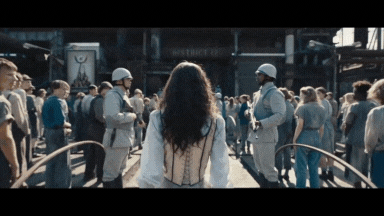
Aphrodite, goddess of love, beauty, desire, passion, pleasure, and fertility
Despite being an orphan, being different, and even being weird to many people, Lucy Gray is always loved by many.
Lucy Gray managed to be in good terms with the peacekeepers in District 12 that she was not stopped when she sang after being reaped, and to get the support of many people, even in the Capitol, even when she was seen as too small and weak to win the games.
Lucy Gray also charmed Coryo to the point that he was convinced that they were similar and unique.
Despite being seen as too small and weak to fight, Lucy Gray is charming, clever, and knows her way in the wild enough to escape Coryo.
Lucy Gray remains in Coryo's mind even after everything.
Coriolanus Snow, Son of Zeus

Zeus, lord of Olympus, god of thunder, lightning, sky, kingship, honor, and justice
Coryo is ambitious and never settles for anything less than absolute power.
Coryo, despite the house of Snow falling after the war, was still convinced that he was above everyone and he deserved the glory, honor, and success all others got.
Coryo also willingly betrays those he claimed he loved if it meant rising to power.
Due to how everything ended with Lucy Gray, Coryo grew to hate everything that reminded him of her, but he still wants to be reminded of her so that he can never forget his mistake.
Despite being cunning, Coryo also grew to hate traps in a forest because of how his father died, to the point of being paranoid.
When he did rise to power, Coryo enjoyed luxury and raised the stakes of the game for absolute entertainment.
There's more for the supporting characters here. "Keep Reading" if you'd like to see more :))
Supporting Characters:
Cinna, Son of Athena
Athena, goddess of wisdom, intelligence, brilliance, civilization, mathematics, strategy, defensive warfare, crafts, arts, and skills
Cinna is a fashion genius who uses his work to express his emotions and his defiance to the Capitol.
Cinna was also able to hide his allegiance with the rebels to the point that no one knew if he was still with the Capitol or with the rebellion, even when he was already truly part of the rebellion.
Cinna had always been kind, caring, and supportive, especially to Katniss, while still vehemently opposing the Capitol behind the facades.
Effie Trinket, Daughter of Aphrodite
Aphrodite, goddess of love, beauty, desire, passion, pleasure, and fertility
Effie can be seen as shallow, posh, and too much of a Capitol citizen, but she eventually grows out of the illusions of Capitol and realizes everything was a sham.
Effie holds manners, etiquette, and perfection above all, but is also often bright and bubbly, much like many, if not all, of the citizens of Capitol.
Effie is also known for her extravagant and unique fashion.
It can be said that it is her attachment, bond, and love for Katniss and Peeta that made her fully realize the evilness of the Capital and eventually caused her to side with the rebellion.
Haymitch Abernathy, Son of Dionysus
Dionysus, god of grape-harvest, wine, orchards, fertility, madness, parties, religious ecstasy, and theater
Haymitch is known for being quite unapproachable, sarcastic, and unfriendly, but is actually capable of caring and taking control of his own impulses and temper.
Haymitch, aside from caring for and adoring Katniss and Peeta, is also quite observant, smart, and tactical that he actually helps them before, during, and after the games through setting up how they should keep appearances for sponsors and support, and how to stay alive.
Haymitch also helped them in the rebellion, not just in how to win but also by being a great father-figure and/ or friend for support.
Haymitch also openly hates the Capitol and tunes out of reality through liquor.
Tigris, Daughter of Aphrodite
Aphrodite, goddess of love, beauty, desire, passion, pleasure, and fertility
Tigris is widely known for her love for fashion and for being a great stylist in the Capitol.
Tigris' passion for clothes lead her to leave university to pursue fashion.
Despite being a Snow and growing up in the Capitol, Tigris is incredibly kind, sympathetic, understanding, forgiving, generous, and loving.
Because of her overall kindness, Tigris abhors the Hunger Games, even when Coryo rose to power.
Tigris' love for her cousin and family, Coryo, turned to hate when he took absolute power; so much so that she became happy when the rebellion planned to kill him.
Sejanus Plinth, Son of Apollo
Apollo, god of music, poetry, dance, truth, prophecy, healing, plague, archery, reason, sun, and light
Sejanus was known to be kind and gentle, and to hate the Capitol, the Hunger Games, and how the people from the district were treated.
Sejanus often spoke up for humanity, and reasoned against the necessity and cruelty of the Hunger Games.
Sejanus hated the Capitol so much that he wanted to return to District 2, though both areas disliked their family as neither believed they fit in their area.
When he became a peacekeeper, Sejanus wanted to be medic because he hated violence.
Sejanus' fate can be said as the unravelling of Coryo and Lucy Gray, and the seed of President Snow's downfall.
Volumnia Gaul, Daughter of Athena
Athena, goddess of wisdom, intelligence, brilliance, civilization, mathematics, strategy, defensive warfare, crafts, arts, and skills
Gaul is widely known as the head gamemaker, the academy's professor, a researcher, scientist, and geneticist.
Gaul is known for her cruelty and viciousness, especially as the head gamemaker of the Hunger Games.
Gaul praises those who impress her, and interesting ideas from her students lead to her asking them for a paper or proposal that may or may not be used to improve the games.
Gaul often implies that the games are there to remind people of their true nature, similar to how people became during the war; thus, effectively replicating, if not extending, the war.
Casca Highbottom, Son of Ares
Ares, god of war, rage, bloodlust, and courage
Highbottom is known as the dean of the academy who, in his university days, crafted the Hunger Games when he got drunk with Crassus Snow, Coryo's father, and they were assigned to create a punishment for enemies so extreme that they will never forget their mistake.
Highbottom's idea of Hunger Games was submitted by Crassus as a project, and he regarded this as a betrayal never to be forgiven, especially when Gaul officially brought the games to reality.
Though he regrets the Hunger Games, Highbottom continues to play his part as the face of the games and by overseeing the mentorship program.
Highbottom excelled at puzzles, hence his idea for their assignment; but it can also be said that he has an affinity to war, though he heavily dislikes it, because of their experience.
Primrose Everdeen, Daughter of Hestia
Hestia, goddess of hearth, warmth, fire, home, family, domesticity and the state
Primrose, the younger sister of Katniss, is known to be very kind, gentle, and delicate that she was even said to have a talent for healing.
Primrose was said to love all living creatures, regardless of how they look like, and she was always inclined to stay with their mother even through the worst times.
Primrose also took care of their mother, even fixing her hair despite being unresponsive, and cleaned off dust on their late father's mirror because she knows he hated dust.
Gale Hawthorne, Son of Hephaestus
Hephaestus, god of fire, volcanoes, forges, blacksmiths, technology, craftsmen, and sculptors
Gale is known to be Katniss' best friend as they both grew up in District 12, the coal mining district, together.
Gale is quick to anger, and Katniss keeps him in check.
Gale also hates the Capitol and does not hesitate to sacrifice some lives if it meant the success of the rebellion.
Gale became the leader figure of the rebellion and so he made tactics to win the war.
Gale is also rather idealistic, and he burns with fire and passion especially in the rebellion
Clemensia Dovecote, Daughter of Athena
Athena, goddess of wisdom, intelligence, brilliance, civilization, mathematics, strategy, defensive warfare, crafts, arts, and skills
Clemensia is implied to be rather smart and quite competitive, as she and Coryo were buddies (and partners) in studying and projects.
Clemensia was also shown to be responsible as she always wanted to contribute in group works.
Clemensia's attitude after being bitten by the snake was thought to be off from her usual kind and humble self, as she became hysterical.
Grandma'am, Daughter of Demeter
Demeter, goddess of agriculture, harvest, grain, and fertility
Grandma'am thought very highly of their status as the family of Snows, and so she greatly cared for both Coryo and Tigris.
Grandma'am, while severely looking down on anything and anyone related to the districts, was also known to be fussy and maintained the need for civilities despite going through hardships.
Caesar Flickerman, Son of Hermes
Hermes, messenger of the gods, god of merchants, commerce, trade, roads, travel, diplomacy, gymnasiums, athletes, orators, thieves, and invention
Caesar is the master of ceremonies and the host of the later Hunger Games.
Caesar helps the tributes by bringing out the best in them to get more sponsors that can allow them to survive better in the games.
Caesar is also known to be rather positive and entertaining, and so he is well-liked in the Capitol.
It is also notable how he feels sympathy for the tributes, hence, his initiative to help them gain sponsors.
Rue, Daughter of Apollo
Apollo, god of music, poetry, dance, truth, prophecy, healing, plague, archery, reason, sun, and light
Rue was always excited about the thought of adventures, and she loved music and singing with mockingjays.
Rue was known to be kind and gentle, and her being the eldest meant she took care of her siblings.
Rue also helped heal Katniss, and she was quick to trust her after they established alliance.
Finnick Odair, Son of Aphrodite
Aphrodite, goddess of love, beauty, desire, passion, pleasure, and fertility
Finnick is widely known to be charming and handsome, and he knows this, so he makes almost anyone love him.
Finnick is also rather easy to be with and easy to talk to, which might lead anyone to think he is shallow, but in reality, there is so much more to him and about him.
Finnick's charm might also lead people to think he goes around with anyone and everyone, but he is only in love with his partner, Annie, and would very much prefer to only be with her, if not for their circumstances.
Johanna Mason, Daughter of Ares
Ares, god of war, rage, bloodlust, and courage
Johanna is most known for her being outspoken and unafraid to show her rage towards the Quarter Quell.
Johanna's victory in her Hunger Games was associated to her cleverness.
Johanna can also be seen as impatient and cruel, but this can be seen as her way of protecting her vulnerability and trauma from everything.
Plutarch Heavensbee, Son of Athena
Athena, goddess of wisdom, intelligence, brilliance, civilization, mathematics, strategy, defensive warfare, crafts, arts, and skills
Plutarch is known to be of unparalleled intelligence and to be manipulative.
Plutarch, described by Snow as "brilliant", was trusted by Snow to be a trusted and valuable ally, even when in reality, he was already working with the rebellion.
Plutarch is also an exceptional strategist, though he can also be seen as ruthless as he was not bothered by the deaths of both the games nor the war.
#the hunger games#thg#percy jackson#percy jackon and the olympians#pjo#heroes of olympus#hoo#pjo hoo#ballad of songbirds and snakes#the ballad of songbirds and snakes#tbosas#pjo x thg
23 notes
·
View notes
Text

#ballad of songbirds and snakes#the ballad of songbirds and snakes#tbosas#the hunger games#hunger games#thg#coriolanus snow#coryo#coryo snow#lucy gray baird#lucy gray#coryolucy#snowbaird#snow#can't catch me now#the hanging tree
10 notes
·
View notes
Text

#tbosas#the ballad of songbirds and snakes#ballad of songbirds and snakes#thg#the hunger games#hunger games#suzanne collins#lucy gray baird#lucy gray#coriolanus snow#coryo snow#coryo#snowbaird#snow#coryolucy#lucy gray x coriolanus#can't catch me now#olivia rodrigo#mockingjay
4 notes
·
View notes
Text
The Ballad of Songbirds and Snakes: Lucy Gray Testing Coryo After Leaving the Cabin
I watched TBOSAS this weekend and, yes, I have been planning to read the book. Actually, I am reading the book already.
But I really can't get it out of my mind. This "theory". Someone else might have already thought of it but...
Spoilers beyond this line.
It might be that Lucy Gray was testing Coryo when she left the cabin saying she'll get some katniss. She had been very suspicious when Coryo said he killed three people, when Lucy Gray only knows two. At that point, she already knows that he was lying... and she said that trust is important to her. When Coryo saw the guns while looking for fishing rods, he acted extremely creepily. I think it was at that point when Lucy Gray decided to run away.
But the thing is if she really wanted to run away, she had enough lead time for her not to be seen nor caught by Coryo even when he realized she was gone for too long and decided to go look for her. She even had time to set up a trap with the scarf and snake. When Coryo was shouting for her, she was there. The only time she realized that she really had to run away was when he started to have a meltdown and lose his mind/ sanity... or the last of his goodness.
I think what she was testing was his genuine goodness; if she can really trust him with her life or not. When Coryo decided to look for her, his initial thought and feeling was that she left him and betrayed him. He did not think that she might have been caught by the mayor or peacekeepers or just the government in general (if this was in the book, I'm not at that part yet). He did not think that she might have fallen into a trap or a hole or that she was caught by an animal. All he thought of was that he was found out and that Lucy Gray turned her back on him, when it was he who turned his back on her. I think that if he reacted differently, if he showed more concern about her wellbeing rather than his own, if he genuinely cared for her, Lucy Gray might have revealed herself saying that she had a hard time looking for a katniss that was ready to be picked and that he did not need to worry. And that her scarf had fallen when the rain swept it away and that they should look for it, but to be careful because there might be snakes somewhere.
But no. Coryo panicked and took a gun with him. He kept shouting accusations at her, kept revealing his own guilt, kept being aggressive. When he could not get an answer, when he realized he cannot own nor control her, he raged. He did say that they can talk about it, fix it, if he said or did something wrong; but his actions, tone, and gun showed the exact opposite: he was not going to trust her and that he might (will) kill her, Lucy Gray, the loose end he hoped to tame and control for the sake of love... but couldn't. All these and his raining of bullets showed Lucy Gray that she was mistaken in hoping that Coryo genuinely cared for her. All these showed that he was and will continue to be selfish and manipulative for his ambitions. The evidence was already there: Sejanus, his "brother", dead because of him and his ambitions to reign over Capitol and the whole of Panem. Which is why she ran and was (almost?) shot by Coryo. And why she sang The Hanging Tree to stir up the mockingjays and cover for her.
But then again, we really don't know what happened. The story was told in Coriolanus Snow's perspective, and for all we know, he might have been delirious that time. Maybe Lucy Gray Baird was already gone and it was some forest creature that he shot. Maybe he imagined The Hanging Tree. Maybe she was really shot but just got away and died on the way up north. Maybe she was really shot but was only grazed, so she still got away on time.
Either way, the ambiguity is amazing. There are tons of heroic tales, especially of women, that were erased from the records of history or were really not recorded for fear that they might inspire uprisings against the ruling class. The Ballad of Songbirds and Snakes portray this perfectly, and why and how it happens... and The Hunger Games trilogy show what happens long after history was tried to be remade, but then marks of the past remain to see the downfall of an abusive and oppressive power.
#tbosas#the hunger games#hunger games#the ballad of songbirds and snakes#ballad of songbirds and snakes#lucy gray#lucy gray baird#coriolanus snow#president snow#snow#coryo snow#coryo#snowbaird#lucy gray x coriolanus#coryolucy#can't catch me now#the hanging tree
61 notes
·
View notes
Text
I'm never moving on from The Invisible Life of Addie LaRue
The angst. The yearning. Incredible.
Adeline LaRue was a young girl from a small town dreaming of a world bigger than what she sees. Then, out of desperation, she made a deal with the devil.
Or is he the devil?
“I am not some genie, bound to your whim." He pushes off the tree. "Nor am I some petty forest spirit, content with granting favors for mortal trinkets. I am stronger than your god and older than your devil. I am the darkness between stars, and the roots beneath the earth. I am promise, and potential, and when it comes to playing games, I divine the rules, I set the pieces, and I choose when to play. And tonight, I say no.”
And so her wish of freedom was granted... with a price. She has all the time in the world to enjoy life and to not be bound by anything. Being unbound, then, means no one would remember her. Such is the price when you make a deal with the gods that answer after dark but you do not know what you want and you do not clear up your own conditions, rules, and limitations.
Spoilers past this line.
Addie named Luc, and by doing so, she humanized him.
I CANNOT MOVE ON from their dynamic. For years, decades, centuries, no one can remember her. No one can mention her name, not even Addie herself. Only Luc who has been taunting her, pushing her to give up her life.
Now, let me clear this up: I DO acknowledge that the power dynamics between them play a huge role in their relationship. Her craving love and attention stemmed from the fact that no one else can know her deeply enough to create a legitimate human connection, affection, and relationship. Thus, her growing feelings for Luc became inevitable. Luc had full control over her and her life, while all she wanted was freedom to live. With this, let me expressly say that I fully understand and support Addie's scheme in the end (...but I cannot deny that I'm rooting for Luc once and for all admitting defeat, and Addie and Luc having a healthy relationship 😭).
OKAY. So. WHEN THEY STARTED FLIRTING??? I KEPT WANTING TO THROW THE BOOK TO THE WALL!!! Like, DAMN!!! WHY CAN'T Y'ALL JUST BE TOGETHER???? Luc's rizz is undeniable as fuck. And Addie's stubbornness mixes well with his smoothness, thereby successfully intoxicating me.
Luc lifts his glass. "Happy anniversary, my Adeline."
She looks at him, lips parting with their usual retort, but then stops short. If she is his—then by now he must be hers as well.
"Happy anniversary, my Luc," she answers, just to see the face he'll make.
She is rewarded with a raised brow, the crooked upturn of his mouth, the green of his eyes shifting in surprise.
Now, I know that when she was with Henry, they were really healthy. Sure, even Addie does not know if it was love or if it was all just because he was the first human to ever see her as she is. I thought they would be together and overcome Luc's deals. But no.
Even then, Luc can really sweep you off your feet. One thing I hate is how they blame Luc for everything. He is the darkness. In our current world, he is what we call the devil. Of course he is an opportunist. Of course he would always take the upper hand. The bad side of their deal came up because they would not look into the intricacies of the deals they are making. I also acknowledge that Luc always comes in times when one would not really be in the right mind to make a serious deal... so there's that.
BUT. The angst really comes in to take over you. It was chapters in the making. It's a slow burn you wouldn't notice
"You told me once that we were alike," he says, almost to himself. "Both of us... lonely. I loathed you for saying it. But I suppose in some ways you were right. I suppose," he goes on slowly, "there is something to the idea of company."
It is the closest he has ever come to sounding human.
"Do you miss me," she asks, "when you are not here?"
Those green eyes drift up, the emerald even in the dark. "I am here, with you, more often than you think."
"Of course," she says, "you come and go whenever you want. I have no choice but to wait."
His eyes darken with pleasure. "Do you wait for me?"
And now it is Addie who looks away. "You said it yourself. We all crave company."
"And if you could call on me, as I call on you?"
Her heart quickens a little.
She does not look up, and that is why she sees it, rolling toward her on the table. A slim band, carved of pale ash wood.
It is a ring.
It is her ring.
...
"Put it on, and I will come." Luc leans back in his chair, the night breeze blowing through those raven curls. "There," he says, "Now we are even."
The way my stomach erupted with butterflies! The slow confession. The subtle dropping of hints of their feelings here and there. Everything keeps you on your toes. "Will they or will they not? Is there something or not?"
"At least he keeps me company."
Those emerald eyes trail over her skin. "So would I," he says, "if you wanted it."
And so I was kept thinking. Will Luc ever confess? Will Addie ever... agree to it? Accept it? Forgive him?
What's been keeping them apart is the fact that Addie sees Luc as the devil. As the one who made her life miserable. Which is true, to be fair. So I won't ever blame her. Trauma is there and they are bonding.
Like I said, I understand Addie and I understand that there's power play here. Her walls are up, she keeps her guards up, she's hostile towards him, and she's very suspicious because he does not play fair. He never did. But then he started to open up. He started equalizing their position and power.
From what I understand, throughout time, Addie became less and less human, and she learned to hate more and more because the only one who became constant in her life is Luc. On the other hand, Luc became more and more human, and he learned to love and understand more and more because (probably) the only person he has ever spent time with constantly is Addie.
THEN.
"Even if everyone you met remembered," Luc says, "I would still know you best."
She searches his face. "Do I know you?"
He bows his head over hers. "You are the only one who does."
...
His voice, molded to the hollow places in her as he says, "I want you." And then, again, "I have always wanted you."
Luc looks down at her, those green eyes dark with pleasure, and Addie fights to hold her ground.
"You want me as a prize," she says. "You want me as a meal, or a glass of wine. Just another thing to be consumed."
He dips his head, presses his lips to her collarbone. "Is that so wrong?"
She fights back a shiver as he kisses her throat. "Is it such a bad thing..." His mouth trails along her jaw. "...to be savored?" His breath brushes her ear. "To be relished?"
I SCREAMED. Internally. BUT IF I WAS LIVING ALONE, I SWEAR TO GOD. If I didn't care about the book and if it wasn't so expensive (fuck inflation), I WOULD'VE THROWN THIS TO THE WALL SCREAMING.
Anyway, Addie's stronger than me because I would've fallen for him and his tactics over and over again...
"I love you."
They are in New Orleans when he says it, dining in a hidden bar in the French Quarter, one of his many installations.
Addie shakes her head, amazed the words do not turn to ash in his mouth. "Do not pretend that this is love."
Annoyance flashes across Luc's face. "What is love, then? Tell me. Tell me your heart does not flutter when you hear my voice. That it doesn't ache when you hear your name in my lips."
"It is my own name I ache for, not your lips."
The edge of his mouth curls up, his eyes now emerald. A brightness born of pleasure. "Once, perhaps," he says. "But now it's more."
She is afraid that he is right.
I TOLD YOU????? BUT. Does that mean... that is how Luc feels when Addie says his name... when he hears Addie's voice...?
BUT. It also means Addie already feels something. Again, it might be because he's the only constant thing in her life. He's the only one who remembers and that's because he made it that way. But, he did offer to change the terms... Only that there was a misunderstanding because of everything that has happened and how she understands he, and his actions, works.
In the end, Addie's suspicions are justified. Sad for Luc, yes, but Addie has been suffering and it's because of him. If he can change—if he's willing to change—and he grants Addie's freedom with no consequences, no strings attached, and Addie gets to choose her own life in her own terms and who she wants to be with, then maybe when she chooses Luc, it can be healthy...
"I will give you what you want," he says. "If you will do one thing."
"What?" she asks.
Luc holds out his hand.
"Dance with me," he says.
This part was very sad for me. It was clear that Luc has real feelings for her, yet Addie can no longer trust. Damage has been done. Their lines intersected, and from here, they'll only grow apart... Not physically, but emotionally.
But I think it's fitting. Luc is not human, though he is growing more human. Addie is human, but she is becoming more scheming... less human. They really cannot be together because Luc will always hold power and Luc is (or was?) manipulative. And Addie cannot find it in her to trust him again. Though Luc might change, to Addie, he is only the devil. And that is justified (though sad).
"What a hard lesson it must be for you," she says. "That you can't have everything you want."
"Want?" he sneers. "Want is for children. If this were want, I would be rid of you by now. I would have forgotten you centuries ago," he says, a bitter loathing in his voice. "This is need. And need is painful but patient. Do you hear me, Adeline? I need you. As you need me. I love you, as you love me."
She hears the pain in his voice.
Before we continue, may I just say one thing. LUC ALWAYS CALLS HER "ADELINE". Not "Addie" but "Adeline". And I think that means something.
Addie has always wanted to be "Addie", the name Estelle gave her. Since before, she did not want to be "Adeline". But, as she lived her immortal life, she kept wanting to go back to her old life. She yearned to be remembered again, even if it meant being tied down... But then she kept remembering she never wanted to be married and to just stay there forever. So even if she kept yearning for her life as "Adeline", she would still always want to be "Addie".
And Luc... calls her "Adeline". Easy explanation: Luc always says that she's always been his. That's because she traded her soul for freedom. This means she is really his, her whole being and life, whether as "Adeline" or "Addie"; but her birth name is "Adeline", and so her real, purest, and barest being is "Adeline". "Addie" came from "Adeline", whether it's just her name or her being.
But in my head: Being "Adeline" is being home, and Luc offered her just that :))
Another interpretation in my head (sad): Luc only sees her and/ or he keeps her as her former self, when Addie wants to be "Addie" aka free. He keeps her as "Adeline", the person who was desperate and in need, when she wants and needs to be "Addie", a person who is free. Thus, Luc is the shackles that hold her back from being free; they had a deal and she is still bound to him. As long as she is kept within a deal, she can never be free. Addie has to be free from Luc to be truly free.
"They can have the story," he says. "So long as I have you."
The ending. Henry did not have a happy ending with Addie because Addie is now with Luc. Yet, in the book's ending, Addie is scheming to make Luc hate her so that he would (unintentionally?) set her free, based on the new deal they had.
Should her plan work, then it will be true to her character: stubborn as a rock, and only wanting freedom. By extension, it highlights her true freedom as no man will ever own her or have her; fitting as she wanted to escape marriage long ago.
However, let us remember that The Invisible Life of Addie LaRue, in the book, was written by Henry... and he never knew the true ending. Of what happened to Addie. Where she is. How she is now with Luc. How she and Luc treat each other. So we can also interpret that as Henry attempting to make a good and open ending for Addie :))
For me, I'll try to think and think about this because I'm clearly never moving on!! Maybe Luc can change and Addie can accept that. Maybe not. Maybe she will be free but Luc will still try to pursue her. Maybe after a long time, she can realize that he really has changed. Maybe they can be together. Maybe not because they have been toxic.
Who knows :))
#book#dark academia#the invisible life of addie larue#addie larue#ve shwab#adeline larue#book review#book recommendations#angst#yearning#slow burn#enemies to lovers
20 notes
·
View notes
Text
I've been writing Chasing Grief since early this year. Today, I reached 100 subscribers on Tapas! 🥳 It's a story in poetry form!! If u like angst, yearning, heartbreak, imagery, feelings, and emotions, please check it out! :))
The lake by the mountain looks magical at midnight
Dancing along with the ripples of water is the moonlight
If a swan swam across the water and starlights fell
I'd think magic existed and my longing for you would quell
You can read more of this on Tapas and Wattpad for free! :))
#oc#chasing grief#poem#poems on tumblr#original poem#love poem#poems and poetry#poems and quotes#poetry#short story#original story#angst#love story#heartbreak#yearning
0 notes
Text
The Invisible Life of Addie LaRue
can i just say I'M NEVER MOVING ON FROM THIS BOOK????? it's been WEEKS and i'm still THINKING ABOUT THEM!!! ADDIE!!! AND!!! LUC!!!
i'll probably make a whole essay about them when i get my head straight...
5 notes
·
View notes
Text
I'm back
finally done with thesis
0 notes
Photo



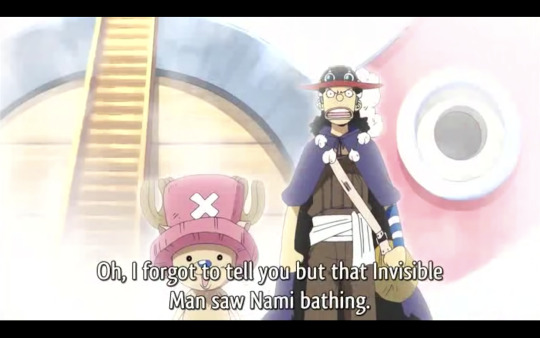

sanji in skypiea saving nami vs sanji in thriller bark raging about nami’s “wedding” and absalom harassing her in the bathroom
the consistency. very on brand 😌
#one piece#sanji#Sanji One Piece#one piece sanji#thriller bark#thriller bark arc#Nami One Piece#one piece nami#cat burglar nami#nami#black leg sanji#vinsmoke sanji#sanji vinsmoke#straw hat pirates
23 notes
·
View notes
Photo
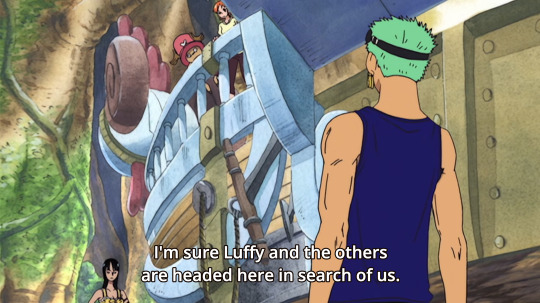

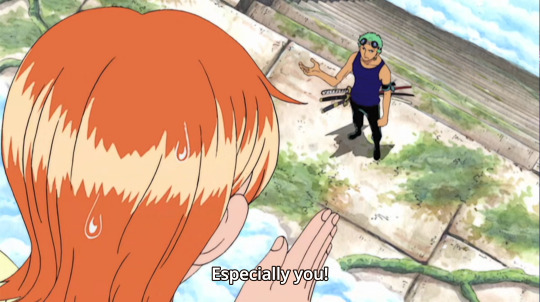
say what now, zoro?
#one piece#zoro#Zoro One Piece#roronoa zoro#one piece zoro#Pirate Hunter Zoro#skypiea#skypiea arc#sky island#sky island arc#straw hat pirates
21 notes
·
View notes
Photo
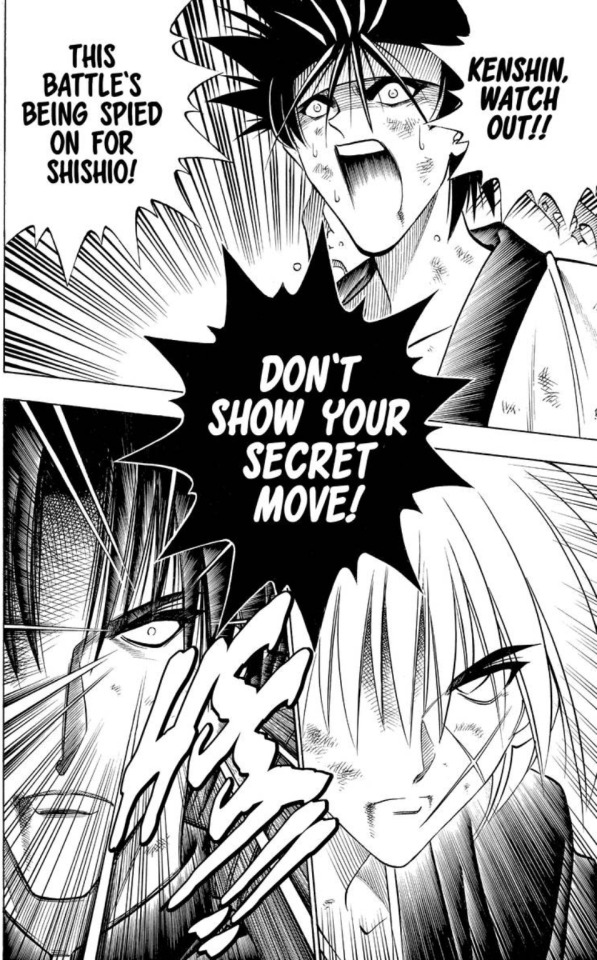

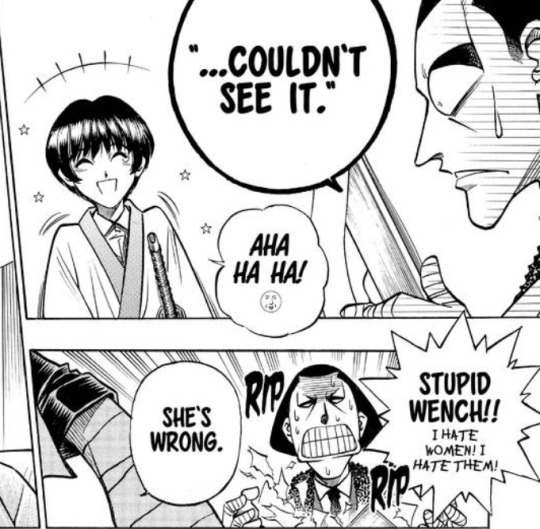
yumi is me
8 notes
·
View notes
Photo
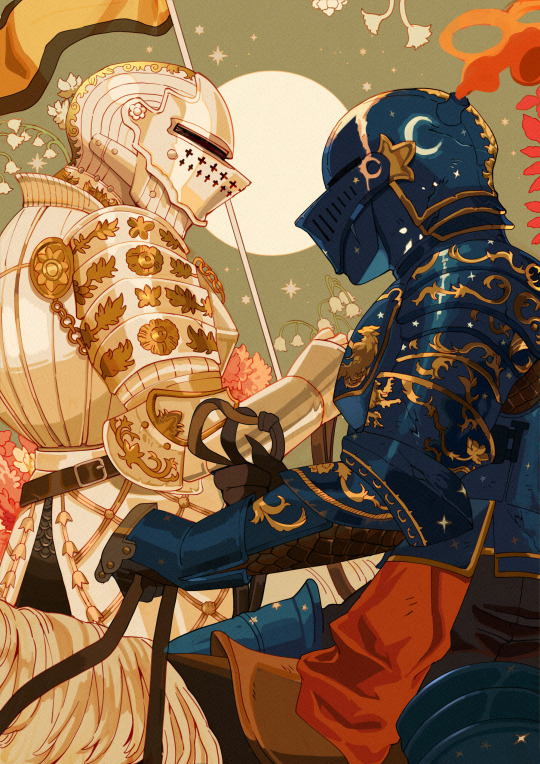
Star-crossed
If you would like it as a print you can purchase it at my store <3
146K notes
·
View notes
Photo






this scene made me tear up :’) almost no one believed them. people laughed at them when they said they wanted to go to sky island. this scene is like seeing them reach their dreams despite everything. regardless of what others said, they all believed in each other and in their own dreams. and it’s also an affirmation of what they can already do, especially nami <3
#one piece#skypiea#skypiea arc#sky island#sky island arc#straw hat pirates#Nami One Piece#one piece nami#cat burglar nami
17 notes
·
View notes
Photo

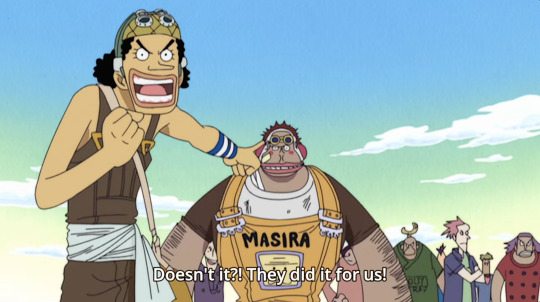

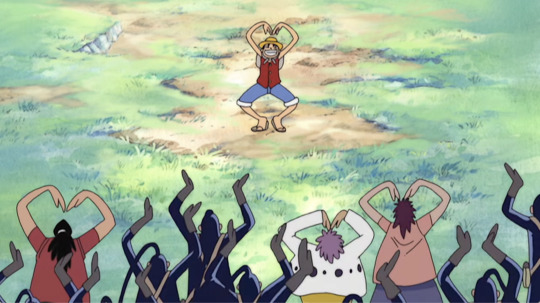
HEART ❤️
#one piece#Luffy One Piece#luffy#monkey d. luffy#straw hat luffy#one piece luffy#mugiwara#straw hat pirates#usopp#usopp one piece#one piece usopp#sogeking#sniper king usopp#sniper king#god usopp#skypiea#skypiea arc#sky island#sky island arc#jaya island arc#jaya arc
20 notes
·
View notes
Photo
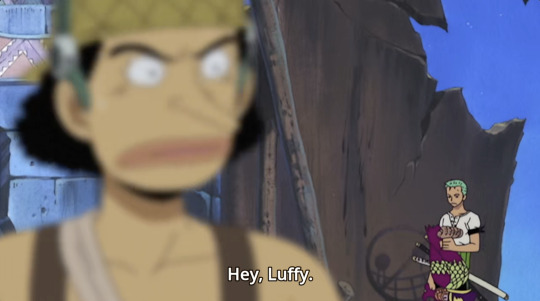
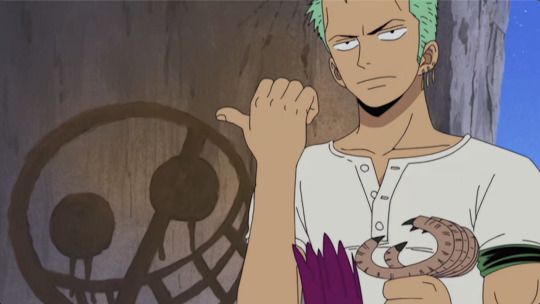

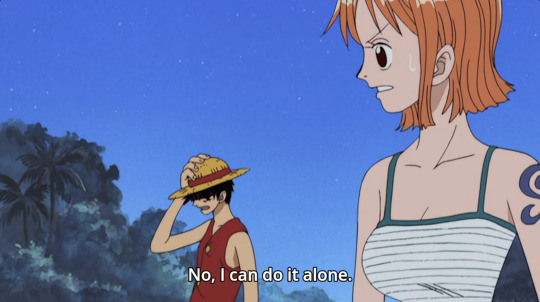
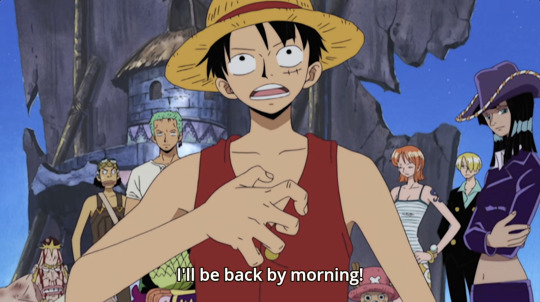
the way zoro just knows. he knows luffy too much so he just casually offers him help bcos he knows there’s no doubt luffy’ll fight :’)
#one piece#Luffy One Piece#luffy#monkey d. luffy#straw hat luffy#one piece luffy#straw hat pirates#mugiwara#jaya island arc#jaya arc#skypiea#sky island#skypiea arc#sky island arc#zoro#Zoro One Piece#roronoa zoro#one piece zoro#Pirate Hunter Zoro
19 notes
·
View notes